
Want a healthier pizza crust? Try this cauliflower pizza crust recipe and satisfy your pizza cravings without cheating on your healthy lifestyle. Plus tips for how to make the crust vegan, dairy-free, and without a food processor!
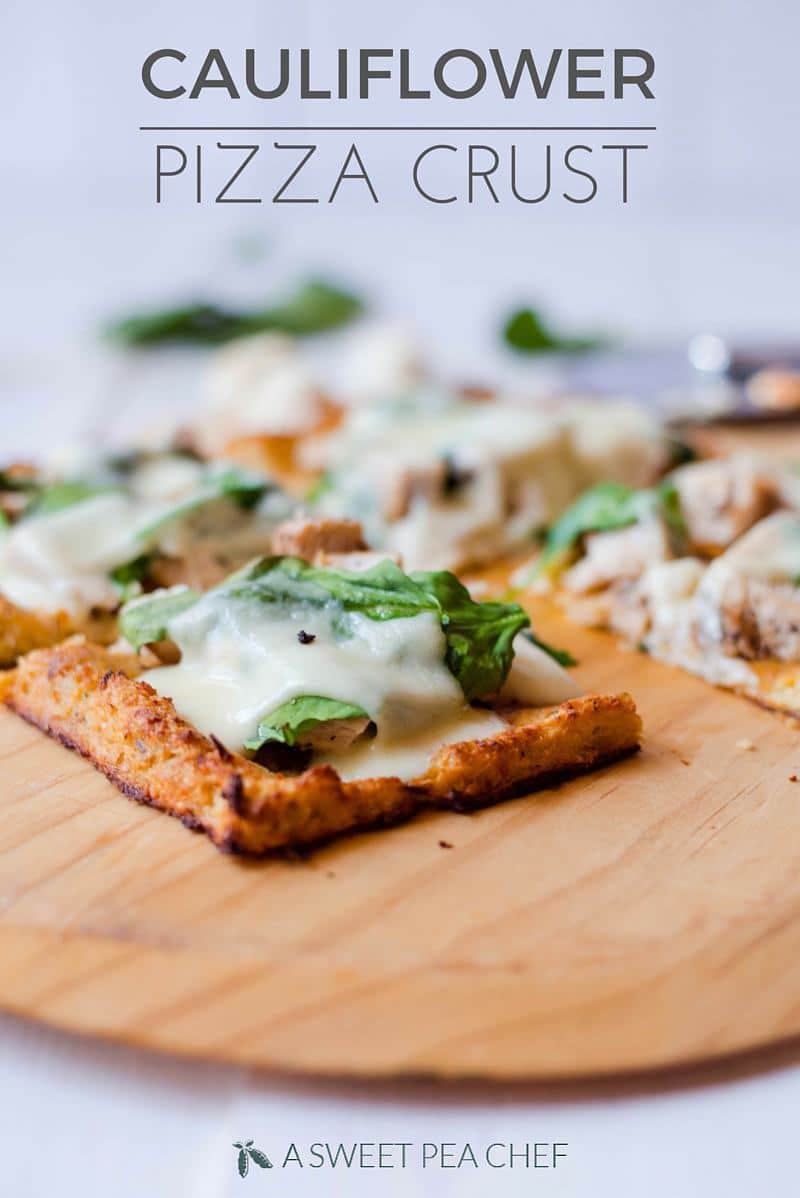
Pizza. It’s glorious, isn’t it?
I mean with all the savory goodness, bubbly cheese, and delicious, chewy and crispy crust?
I’m like a huge fan of pizza. Pizza and me are buds.
Or, at least…we used to be buds.
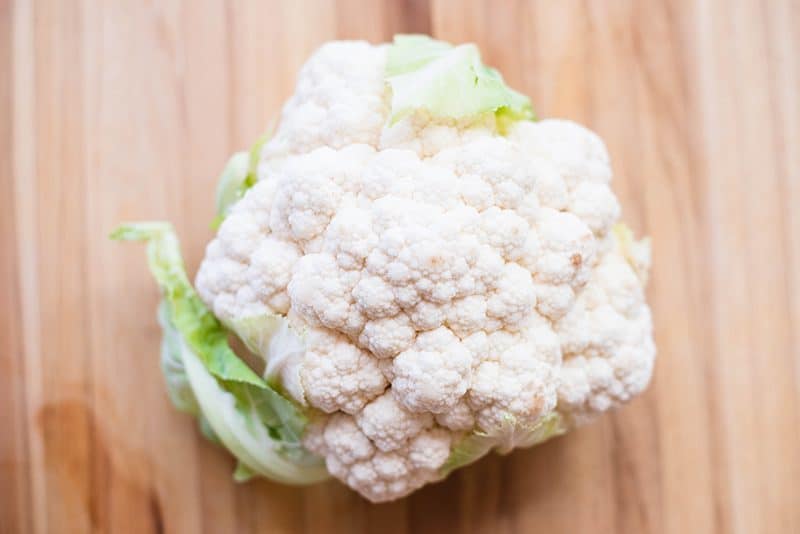
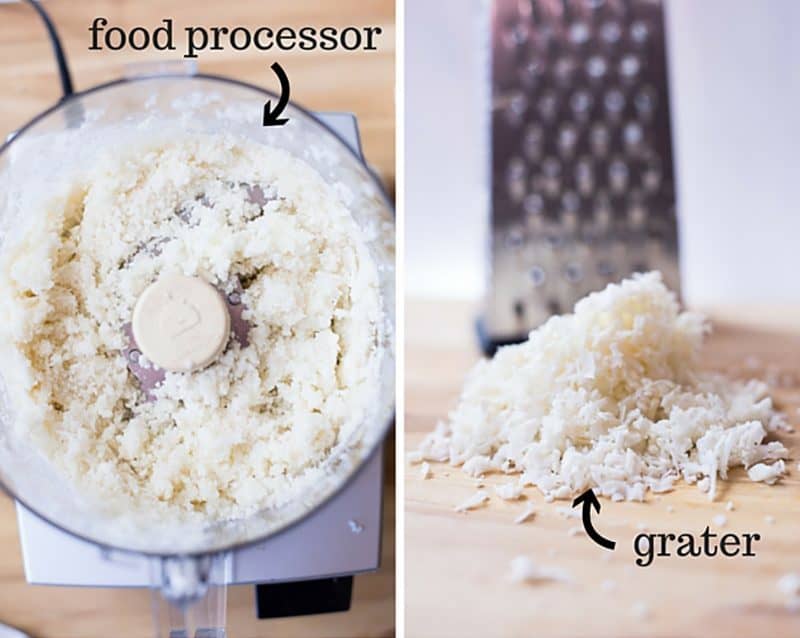
My new healthy lifestyle doesn’t really allow for much pizza anymore, except on cheat days (which often involve pizza fo sho).
I had to take matters into my own hands. I needed a way to sneak pizza into my new healthy, clean lifestyle.
But, how?
Oh, I’ll tell ya how: cauliflower.
Yup, cauliflower. I’ve said it before and I’ll say it again: There’s seriously nothing cauliflower can’t do.
You can turn it into rice, cheese sauce, mashed potatoes, and…CAULIFLOWER PIZZA DOUGH.
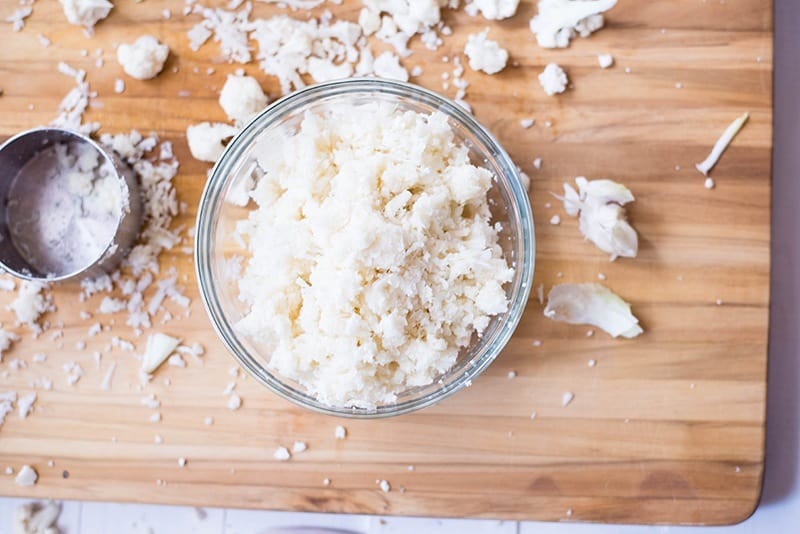
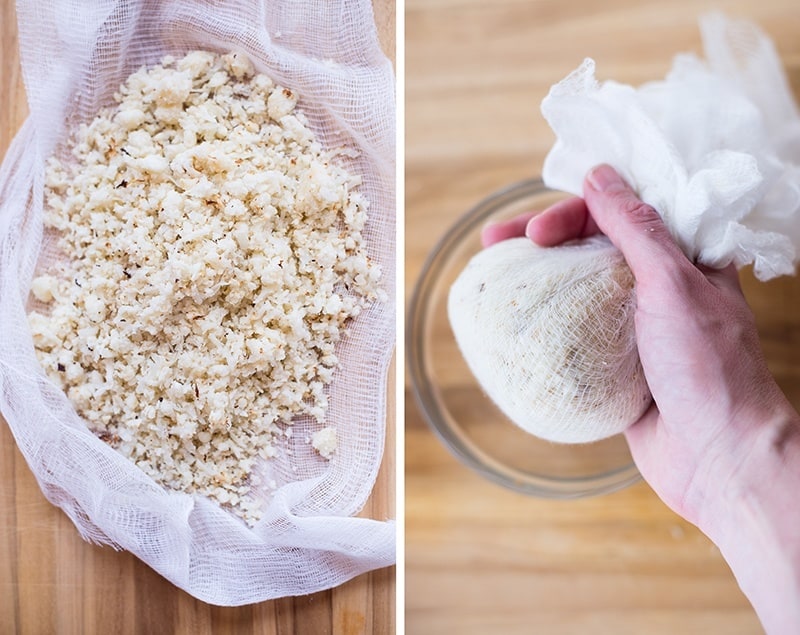
It’s cool, I’ll wait for you to finish your happy dance. I’ll dance with you.
Woot. Woot.
I’ve been wanting to learn how to make cauliflower pizza crust for like EVER. It always seemed super fussy so I kinda avoided it.
Finally, though, I tried it for myself and it was … almost… glorious. The truth is, the first time I tried making it on my own, I made a couple rookie mistakes, being the cauliflower pizza dough newbie that I was.
Psh…newb.
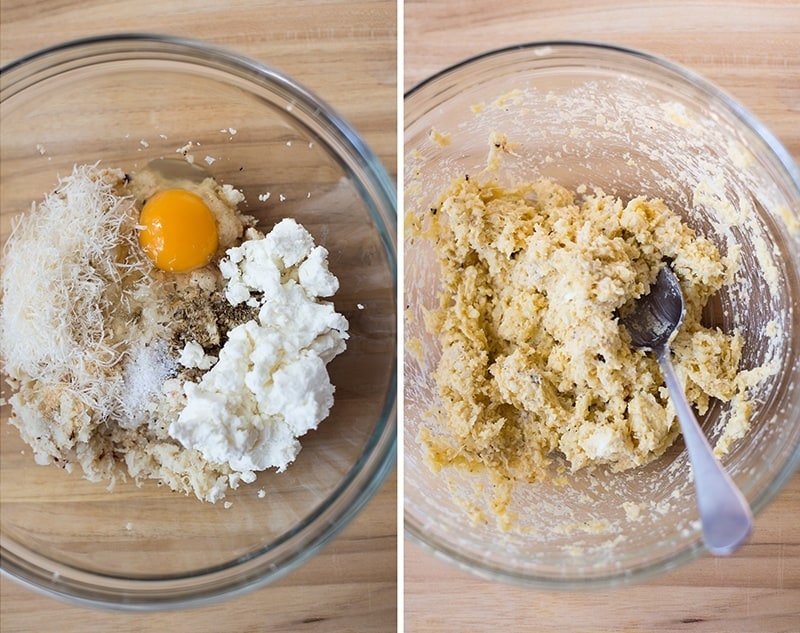
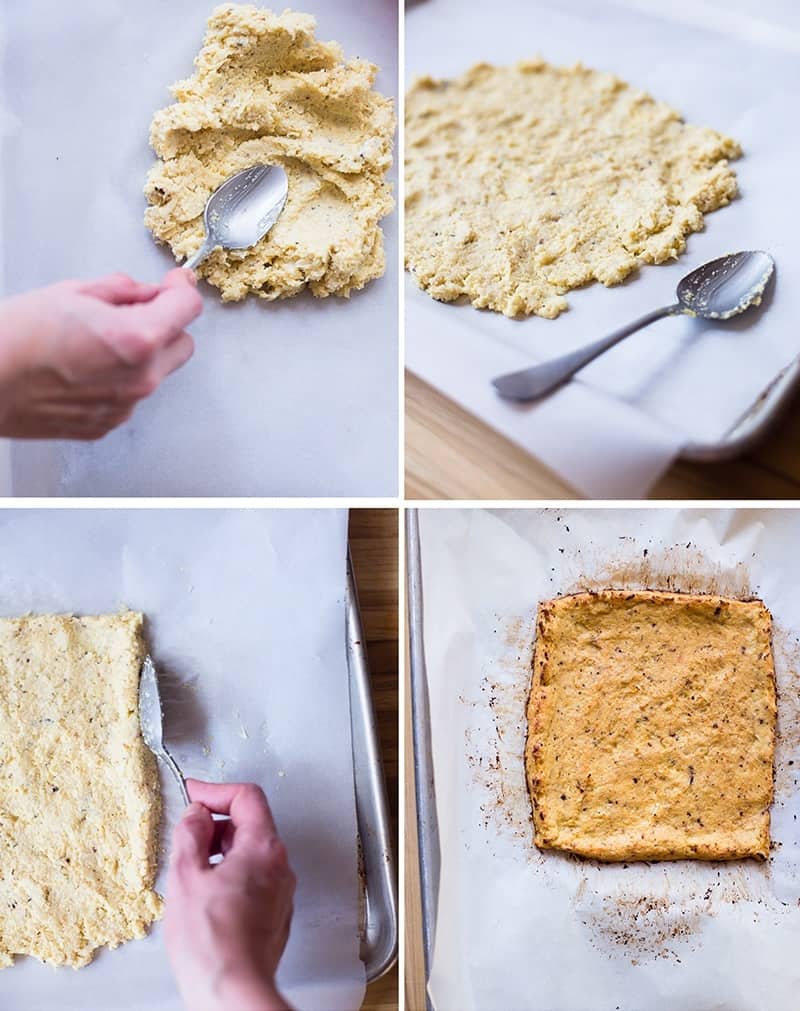
This is a big rookie mistake if you jump in without knowing what you’re doing. The trick to making cauliflower pizza crust not soggy is to get as much of the liquid out of the cauliflower as possible before turning it into the dough.
So, how do you do this? First, you need to get it tender BEFORE making the crust. You want it to be cooked ahead of time so it’s already released its moisture and cooked down.
Totes important.
Do I Need a Food Processor for Cauliflower Pizza Crust?You’ll need to turn the cauliflower into cauliflower rice using either a food processor or a kitchen grater. Both work fine, but I do prefer the food processor because it’s quicker and easier than using a grater. If you want to make the cauliflower pizza crust without a food processor, it’s totally okay – just takes a little more time with a kitchen grater and makes a little bit more of a mess.
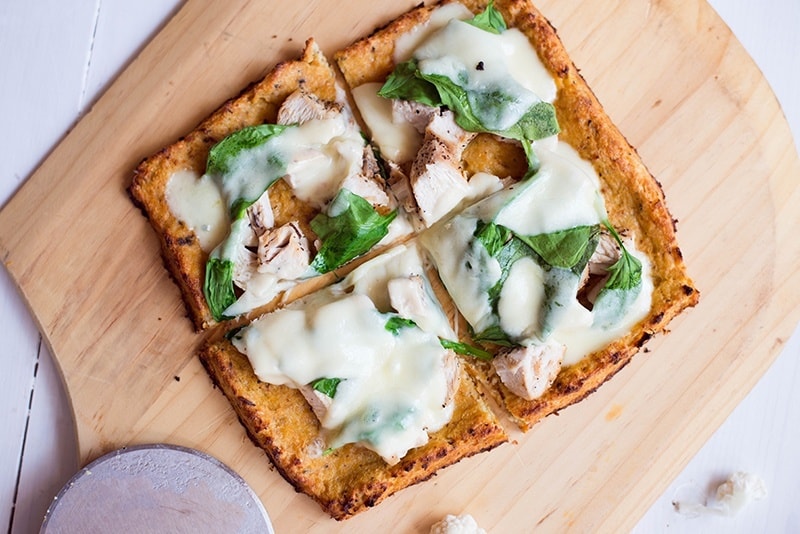
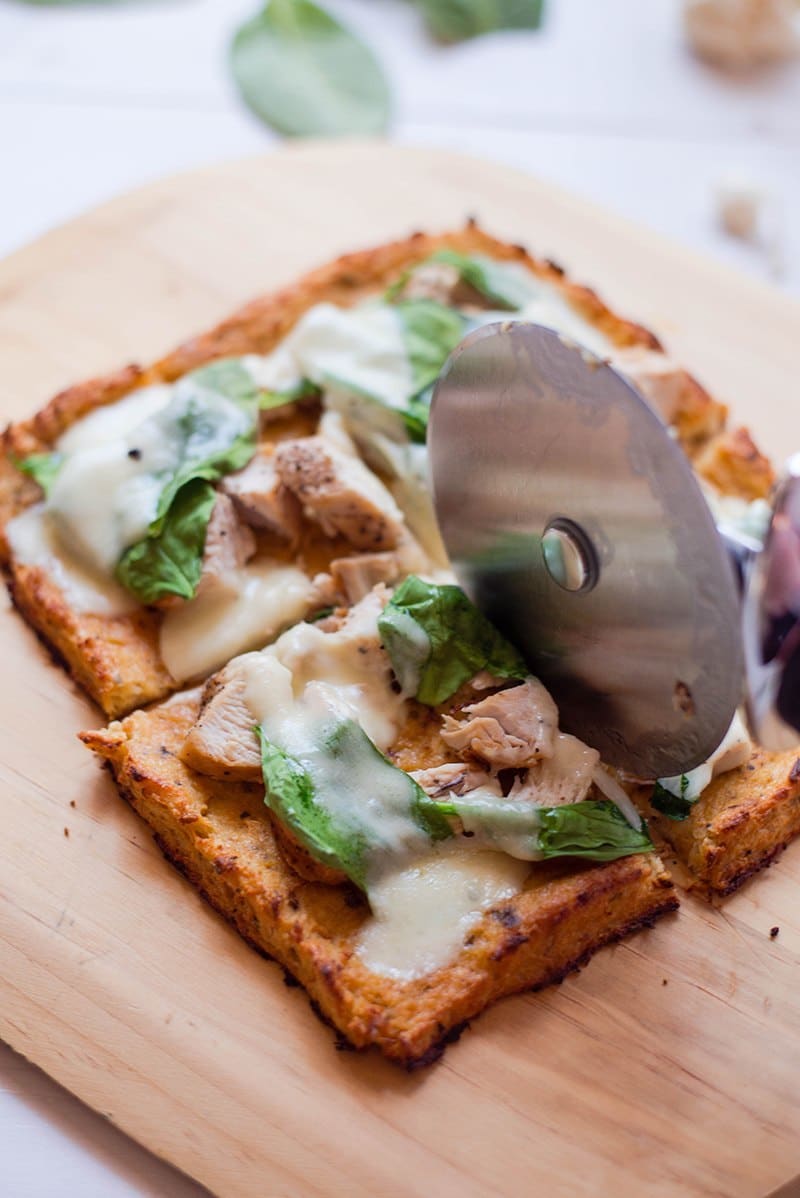
Next, you need to squeeze out the liquid from the cooked cauliflower before forming the crust. You absolutely don’t wanna skip this step. You know me – I skip steps when they’re unnecessary. BUT that’s not the case here – with the cauliflower, you wanna make sure you remove as much liquid from the cooked cauliflower as possible so the resulting crust isn’t soggy.
Trust me on this one.
I use cheesecloth for this step, but you can also use a clean kitchen towel or paper towels – though this cheesecloth, I’ve found, is the best suited and makes the least amount of mess. It’s also okay to squeeze the cauliflower as hard as you can – you won’t hurt it 🙂
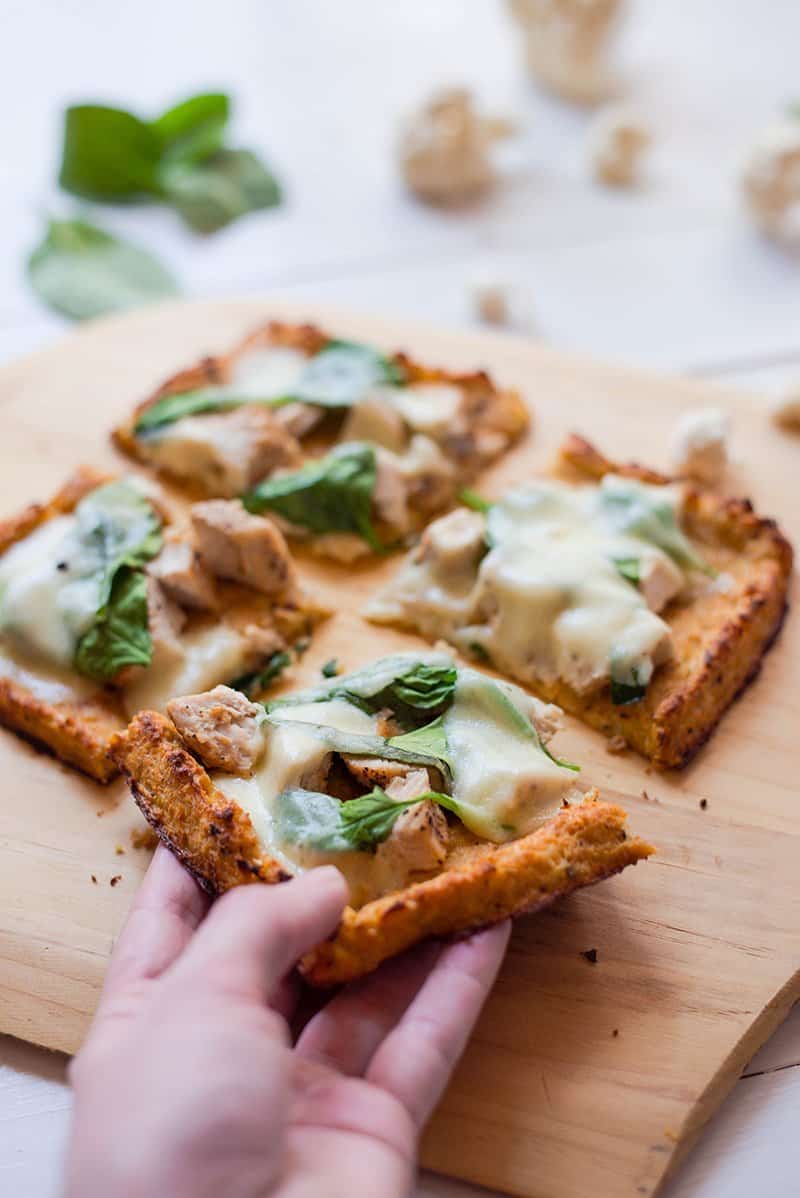
Next, you want to make it crispier. While squeezing out as much liquid as possible will super help with this, there’s another important step to do to make crispier cauliflower pizza crust: pre-bake it. Make sure to cook the crust in the oven BEFORE adding any toppings. This will help it get nice and crispy around the edges once it bakes again with all the toppings on it.
Now that you have what to do and what not to do, you should be good to nail this cauliflower pizza crust on your first try – it’s totally possible and so worth it. In fact, this crust is just as good – if not even BETTER – than many flour-based crusts I’ve had in my day.
Cauliflower, where will you take me next?
How Many Carbs Are In Cauliflower Pizza Crust?A regular pizza crust has approximately 38 grams of carbs. Cauliflower pizza crust, on the other hand, has only 10.9 grams. If you weren’t convinced up until this point, I’m pretty sure now you want to learn how to make pizza crust out of cauliflower!
What Ingredients You Need to Make Cauliflower Pizza?This cauliflower pizza crust recipe requires the following simple ingredients:
1 large cauliflower head 1 egg dried oregano sea salt garlic powder parmesan goat cheeseKeep reading if you want to learn to make cauliflower pizza crust vegan. And, if you hate goat cheese, you can use any soft cheese you prefer to get the same creamy texture.
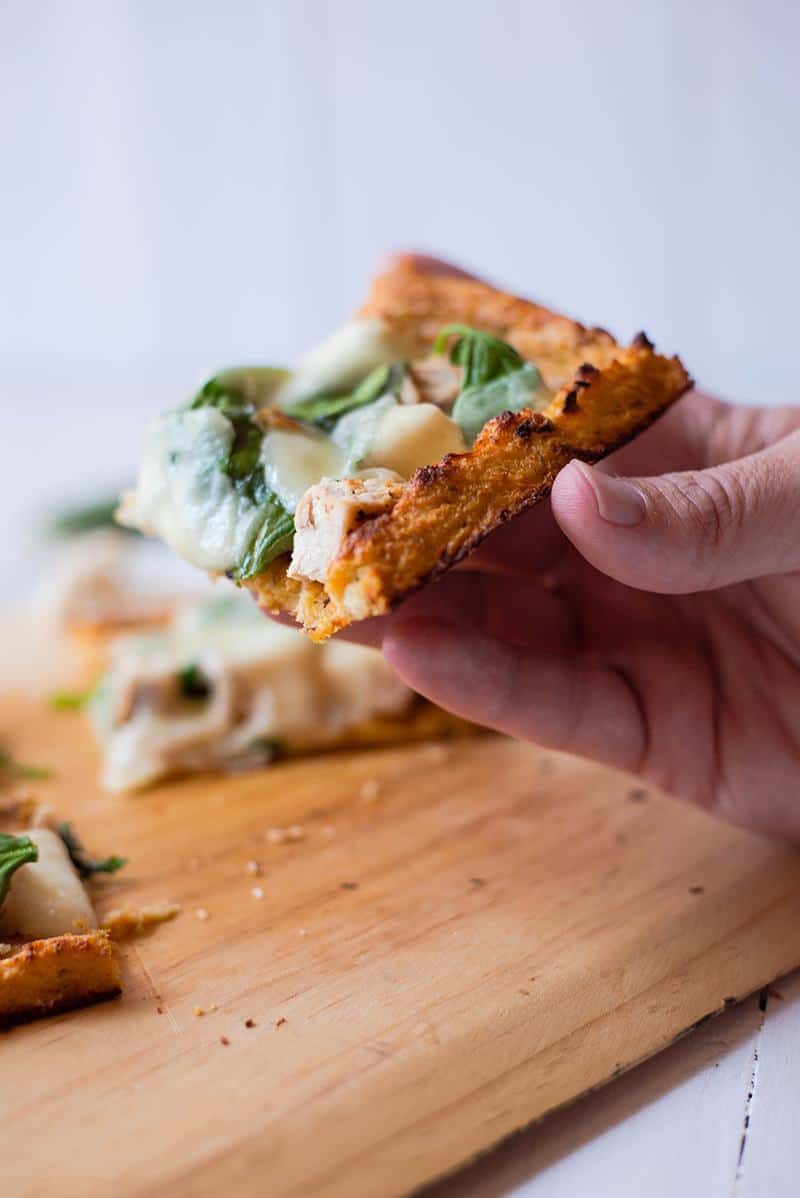
The short answer to this question is – more veggies in your diet = a healthier diet.
However, there are other things that make cauliflower pizza dough healthier than regular pizza dough. Like the fact that cauliflower pizza crust has fewer carbs than regular pizza crust. And this recipe makes a gluten-free cauliflower pizza crust, which means people with gluten intolerance or Celiac disease can enjoy it too.
Or the fact that cauliflower pizza crust can be adjusted to meet your dietary needs.
You can easily learn how to make pizza crust out of cauliflower and, just as easily, you can learn how to make cauliflower pizza crust without cheese (omit the cheese and add an extra egg). You can also make cauliflower pizza crust vegan if you want.
See? Cauliflower really is the most versatile veggie in the world of veggies. It’s full of fiber and other natural goodness. Plus: yum!
How To Make Cauliflower Pizza Crust Without Cheese (Vegan)I use cheese and egg in this cauliflower pizza crust to add texture and help hold it together. However, you can easily replace both with just a few quick replacements. Instead of an egg, make a flax egg by combining 1 tablespoon ground flaxseed meal with 3 tablespoons of water. Just mix together, and then let sit for 5-10 minutes to thicken. Then, to replace the cheese, you can use flour.
My preference for this recipe is to use chickpea flour (AKA garbanzo bean flour). Instead of the parmesan and goat cheese, add 1/4 cup chickpea flour to create the vegan cauliflower pizza dough. If you’d like to add a little “cheese” flavor, you can add in a tablespoon or two of nutritional yeast, too.
Yep, you can make this easy cauliflower pizza crust ahead of time and freeze it. After cooking the pizza, allow it to cool, and then place into an airtight container or freezer safe ziplock bag. You can add the toppings on the cauliflower pizza crust and freeze them together or just store the crust.
When you crave pizza, all you have to do is remove your pizza crust from the freezer, add your favorite toppings (or not if you opted for freezing them together), and reheat it in the oven for 10 minutes at 425° F. Easy peasy.

Do your tastebuds and waistline a favor and learn how to make cauliflower pizza crust! Plus easy steps for how to make vegan.
The nutrition information is for just the cauliflower pizza crust, not the optional toppings.
To make this recipe vegan, replace the egg with a flax egg (combine 1 tbsp. flaxseed meal with 3 tbsp. water, and let sit 5-10 minutes) and the cheese with 1/4 cup chickpea flour.
This post contains affiliate links for products and tools I use frequently and highly recommend.
The post How To Make Cauliflower Pizza Crust + My Go-To Cauliflower Pizza Recipe appeared first on A Sweet Pea Chef.
This Paprika Herb Goat Cheese Spread was created in partnership with AncestryDNA. All opinions are our own.
This goat cheese spread takes happy hour to the next level in 5 minutes! The ultimate easy appetizer, pair this cheese spread recipe with crostini and wine. Also: it’s inspired by our surprise AncestryDNA results!

Recently, we got back our results and we couldn’t believe what we found! Ready to see our results?


Here are my AncestryDNA results! I’ve grown up knowing I’m 50% Norwegian, 25% German, and 25% English. My maiden name growing up was Kuhnau, a very German name, and my dad’s always had a strong identification with his German heritage. So I typically tell people I’m Norwegian and German descent. However, when you look at these DNA results: surprise: I’m only 5% German! And in place of what I thought was German, 34% of my DNA is from Great Britain. I never would have guessed that! So, this AncestryDNA test shows that DNA is much more complicated than family traditions and culture.
Another surprise (and delight) came from my Spanish background. Growing up I fell in love with the Spanish language, studied abroad in Madrid in college, and have a deep love for the country. I’ve always joked that I was a Spanish flamenco dancer in another life! Low and behold, my AncestryDNA results say my DNA is 5% Spanish (Iberian Peninsula)!

And here are Alex’s DNA results! Going into the test, he identified his heritage as 50% French, and the remainder German and British. As you can see above, he’s mostly Western European! He was interested to see that he showed up as 18% Great Britain, which was more than he expected. It was also cool to use the Migrations feature and see his family came to New York in the US around 1800. What a fascinating way to look at patterns of immigrating throughout history!
And what about our son Larson? Since Larson is adopted, we’d love to know more about his ancestry! We know a bit from his birth mama that he’s part Mexican and Polish, but we’d absolutely love to know more. And who knows, maybe we’ll do a post one day about his background! How about you: if you are adopted yourself or have adopted, have you ever thought about something like a DNA test to discover more about your heritage?
Overall, getting ourAncestryDNA results was such a fun experience! It’s interesting to think about how family culture shapes how you perceive your own heritage, and how your actual DNA may or may not reflect that. Our results have started some fun conversations with our parents and siblings around our results as well. If you want to try for yourself, you can purchase an AncestryDNA kit here!

You’re probably wondering, how does paprika goat cheese spread relate to Alex’s and my AncestryDNA results?
First of all, food is not just about ingredients and flavor. Food is people. Food is an expression of cultural identity. It’s the way we pass down our own culture from one generation to the next, and a powerful way to experience other cultures. Alex, Larson and I just got back from an epic trip to Europe and so much of what we loved about the trip was experiencing culture through food. And speaking of, that trip is partially where we got the inspiration for this cheese spread recipe!
Cheese spreads of all kinds are popular for snacks alongside beer and wine throughout the European regions where Alex is from, be it at a German beer garten or the French countryside. On our trip some dear friends hosted us for a few days in Vienna, Austria before heading to Croatia. They introduced us to liptauer (a tasty Austrian cheese spread), and several other creamy cheese spreads at a buschenshank, a popup restaurant at a winery. These are basically European forms of pimento cheese, which is popular in America! We loved the versatility of these cheese spreads, and enjoyed spreading them on all sorts of breads, crackers, and veggies!
This goat cheese spread is loosely based on that liptauer cheese spread, with nods to a German beer cheese spread and of course French goat cheese spreads. Basically, it’s a European fusion: exactly what our AncestryDNA shows!

Have you tried AncestryDNA kits? If so, what have you found?
Looking for more goat cheese recipes?We know many of you are goat cheese fans! Here are a few more goat cheese recipes for you:

This goat cheese spread takes happy hour to the next level in 5 minutes! The ultimate easy appetizer, pair this cheese spread recipe with crostini and wine.
Add all ingredients to a food processor. Blend for a minute or two, stopping to scrape down the sides, until everything is combined and the spread is orange and creamy. (Be careful not to overwhip, as it can start to separate.)
Serve with bread or vegetables. Store refrigerated. Since it becomes harder in the refrigerator, allow it to come to room temperature before serving so that it becomes easily spreadable.
Keywords: Appetizer, Goat Cheese, Healthy, Snack, Entertaining, Goat Cheese Dip, Paprika, Healthy Appetizer,
A Couple Cooks - Recipes for Healthy & Whole Living
from Merah Hati Cintaku https://ift.tt/2LsQeCi
via MerahHatiCintaku.blogspot.com
 (1 votes, average: 5.00 out of 1)
(1 votes, average: 5.00 out of 1)